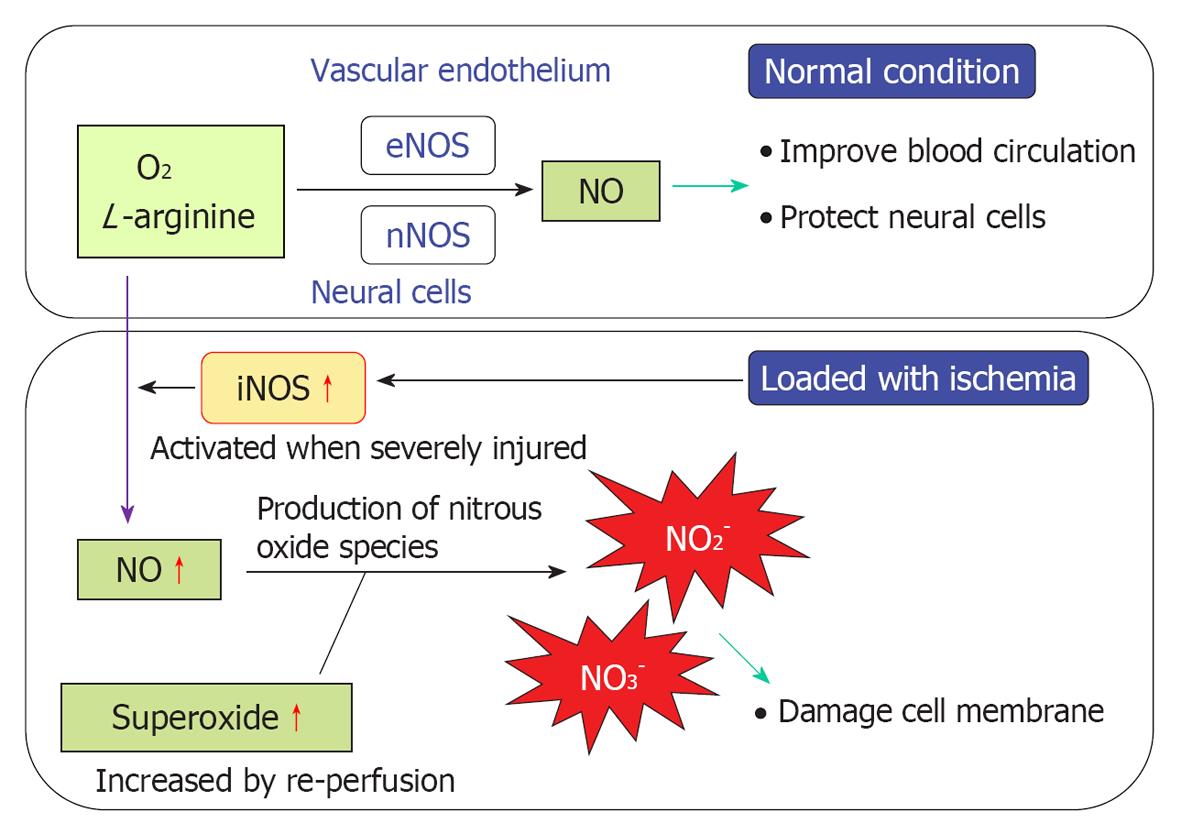Copyright
©2013 Baishideng.
World J Otorhinolaryngol. Feb 28, 2013; 3(1): 1-15
Published online Feb 28, 2013. doi: 10.5319/wjo.v3.i1.1
Published online Feb 28, 2013. doi: 10.5319/wjo.v3.i1.1
Figure 20 Mechanisms of nitrous oxide and free radical production.
In a normal environment, nitrous oxide (NO) not only improves blood circulation by dilating blood vessels, but also protects neural cells against ischemic damage. Production of NO is regulated by enzyme activities of endothelial NO synthase (eNOS) and neuronal NO synthase (nNOS). When transient ischemia occurs, production of NO is facilitated by the expression of inducible NO synthase (iNOS). As superoxide species increase in response to reperfusion, the excessive amounts of NO react with superoxide, resulting in the production of nitrite (NO2-) and peroxynitrite (NO3-). Free radicals are strong toxins that cause destruction of the cell membrane, resulting in cell death.
- Citation: Gyo K. Experimental study of transient cochlear ischemia as a cause of sudden deafness. World J Otorhinolaryngol 2013; 3(1): 1-15
- URL: https://www.wjgnet.com/2218-6247/full/v3/i1/1.htm
- DOI: https://dx.doi.org/10.5319/wjo.v3.i1.1









